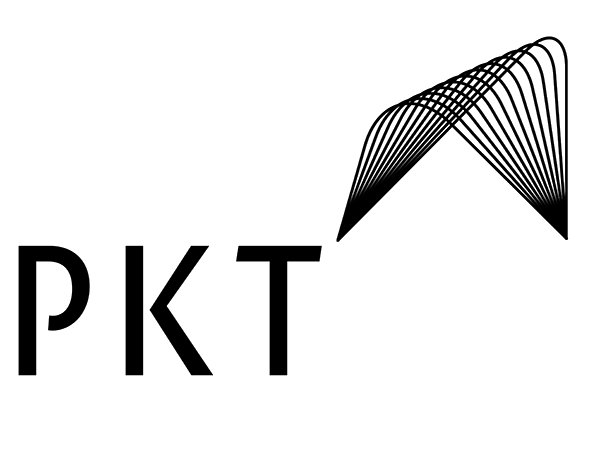
Executive Education: The Key to Professional Development and Success.
We all know the importance of education as the foundation of a successful career. Whether it’s traditional undergraduate and postgraduate studies, formal qualifications or vocational training courses, an investment in knowledge is always likely to pay dividends in the long run. Nowadays, however, the biggest career-boosting opportunities often come through executive education programs – short courses and seminars designed to move professionals up to the next level.
So, why is executive education so important to professional development and success? In a nutshell, it’s because – unlike traditional educational routes – executive education is specifically tailored to the needs of modern professionals. It’s designed to make the most of individual skills and qualifications and equip them with the knowledge, attitude and qualifications needed to succeed in their industry. Crucially, it’s also about developing methods for workplace success, such as increased efficiency, improved management and better communication.
Executive education is also tailored to meet the challenges of a rapidly changing working environment. Today’s business world is one that’s rapidly transforming – driven by technological advances, the globalisation of markets and the ever-changing face of competition. As such, executives need to stay on top of the latest developments and ensure they remain focused on the growth and survival of the company. By participating in executive education courses, they can equip themselves to do just that – gaining the knowledge and expertise necessary to stay ahead of the competition and remain a key contributor to their organisation’s ongoing success.
In addition to the professional benefits outlined above, executive education can also provide personal growth opportunities. Industry-specific courses provide the opportunity for developing a better understanding of different industries and areas of specialisation. And, importantly, executive education is often used as a platform for renewing focus and motivation – an invaluable asset for boosting morale and inspiring individuals to think outside the box.
So, executive education does provide the key to professional development and success – equipping and inspiring professionals to gain a better understanding of their industry, develop their potential and achieve greater success. It’s an increasingly important resource and one which everyone should be taking advantage of.
Types of Executive Education Programs.
Executive education programs provide busy executives and mid-level professionals with ongoing professional development and the opportunity to learn from the best. There are various types of executive education programs, from webinars, to seminars, to conferences, and diplomas. Each type has different objectives and different outcomes, so it is important to understand the best fit for your particular needs.
Webinars.
Webinars are generally geared toward executives and mid-level professionals who have a lot on their plate and need to access educational content quickly. Webinars provide short-term, actionable content that can be immediately applied to the job. Webinars tend to be more informal than other executive education programs; they typically focus on a specific topic and allow for live discussion, Q&A, and practical takeaways.
Seminars.
Seminars are typically multi-day or multi-week programs that provide detailed instruction on a specific topic. Seminars allow participants to interact with peers and to gain insight from leading experts while developing a deeper understanding of key topics. Unlike webinars, seminars allow for a more in-depth exploration of the topic; they provide participants with the opportunity to develop higher-level strategic thinking and problem-solving skills.
Conferences.
Conferences are multi-day events that bring together groups of professionals, academics, experts and leaders from the same industry. Unlike webinars and seminars, conferences focus on the exchange of ideas and current best practices. Conferences provide an opportunity for executives and mid-level professionals to network, to collaborate, and to build their own industry knowledge and professional network.
Diplomas.
Diplomas provide in-depth instruction on a particular industry or field of study. Diplomas typically require participants to attend classes and complete exams to demonstrate their knowledge. Diplomas provide a comprehensive overview of the topic, as well as a tangible indication of the executive’s commitment to ongoing professional development.
Making Executive Education Part of Your Professional Development Plan.
Executive education is an important part of professional development. It provides the opportunity to gain insights into business strategies, management techniques, and leadership skills. By engaging in executive education, you can develop the knowledge necessary to help you excel in your career and navigate the ever-changing business world.
But with so many executive education choices out there today, it can be difficult to choose the one that’s right for you. Making executive education a part of your professional development plan requires careful consideration and planning. By taking a few key steps and determining what your goals are, you can ensure that you choose the program that best fits your needs.
Step One: Research
Before embarking on an executive education program, start by researching your options. Look for programs that offer the type of instruction and guidance you need. Does the program provide up-to-date information relevant to your field? Are the instructors experienced, knowledgeable professionals? Is there a proper balance of theory and practice?
Step Two:
Evaluate Evaluate the various programs that meet your criteria. What do other professionals in your field think of the program? What type of feedback have they provided? Does the program have a good reputation? This information can be invaluable in helping you make a decision.
Step Three: Consider Your Potential Return on Investment
It’s important to consider not only the cost of the program, but also the potential return on investment. Will the program provide you with skills and knowledge that will help you advance in your career? Are there any job opportunities that may arise from participating in this type of program?
Step Four: Set your Goals
Having clear goals is critical when it comes to choosing an executive education program. Do you want to develop better leadership skills, gain industry knowledge, or learn new strategies for managing your team? Knowing what you want to accomplish will help you create a plan for achieving those goals.
Step Five: Make Your Decision
Once you’ve evaluated the available programs and considered your potential return on investment, make your decision. Have a clear understanding of what you want to achieve and the type of program that can help you reach those goals. Don’t rush your decision and make sure to choose the program that is right for you.
Conclusion:
Executive education programs provide busy professionals with a variety of options for professional development. From webinars, to seminars, to conferences, and diplomas, there are courses to suit every professional’s needs. Choosing the right type of program depends on the professional’s goals and the outcome they are looking to achieve. It is important to understand the differences between each type of program and how it can help you stay ahead of the curve in your industry.
Talk to us about planning your next Management Retreat
Leadership retreats for executives




